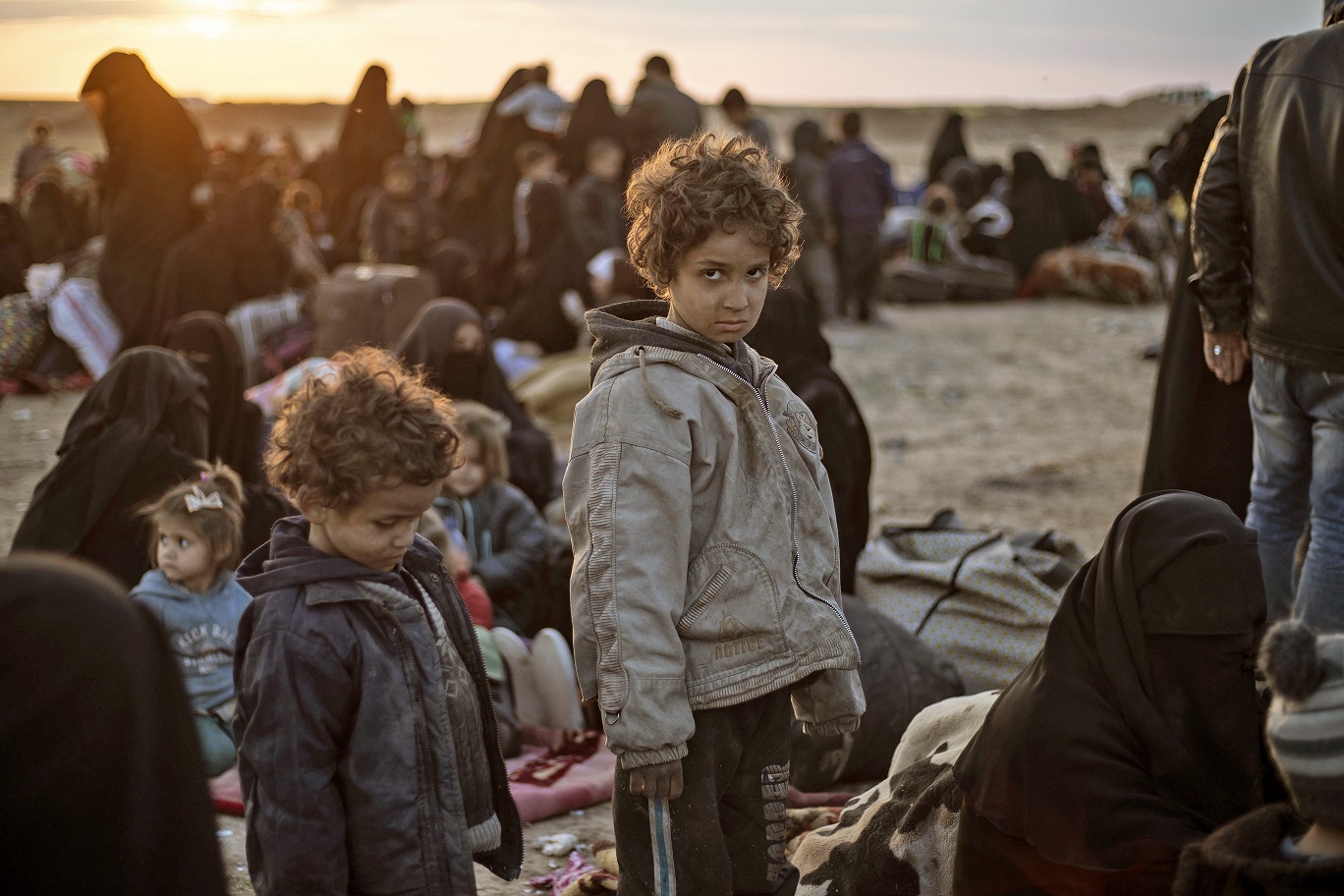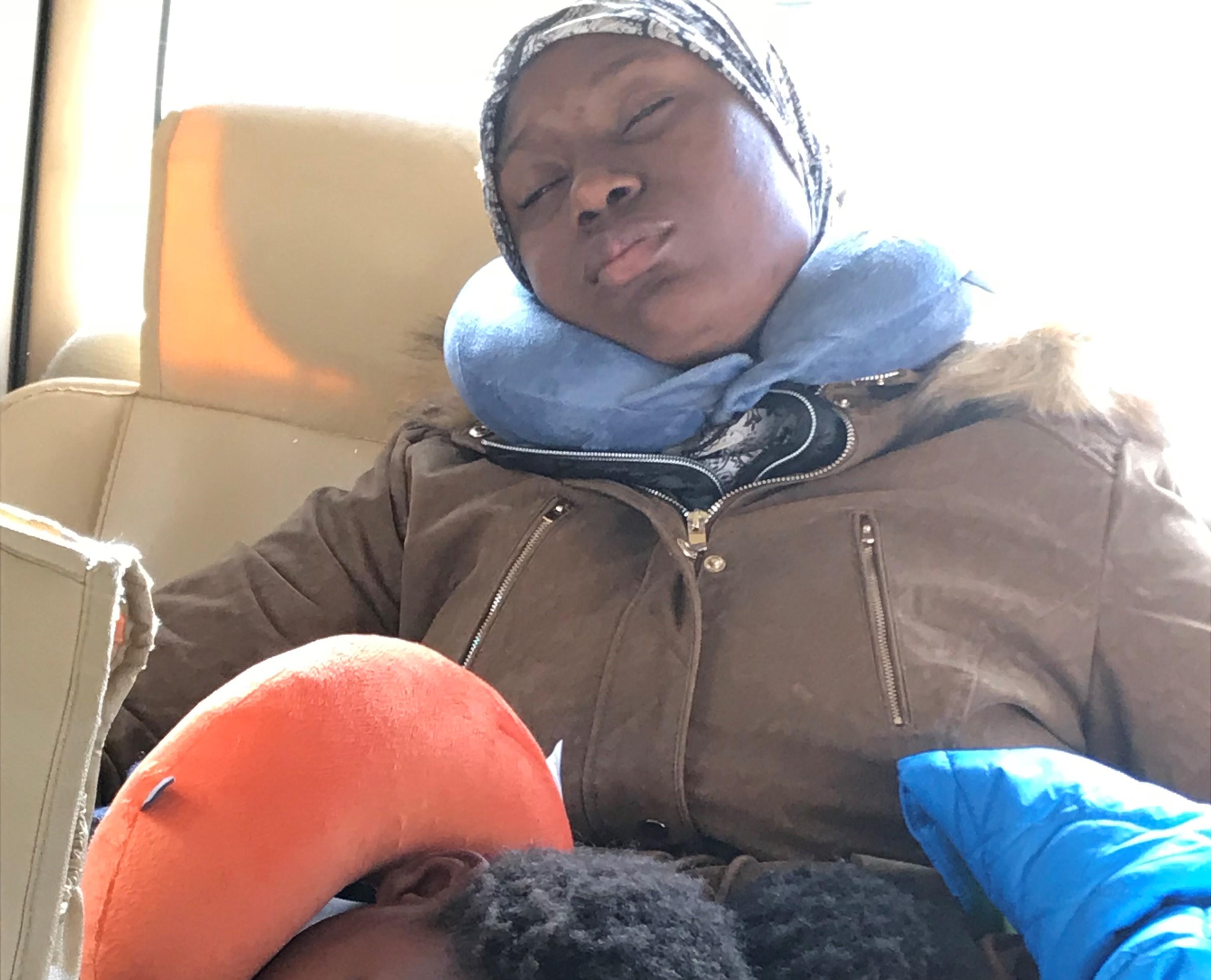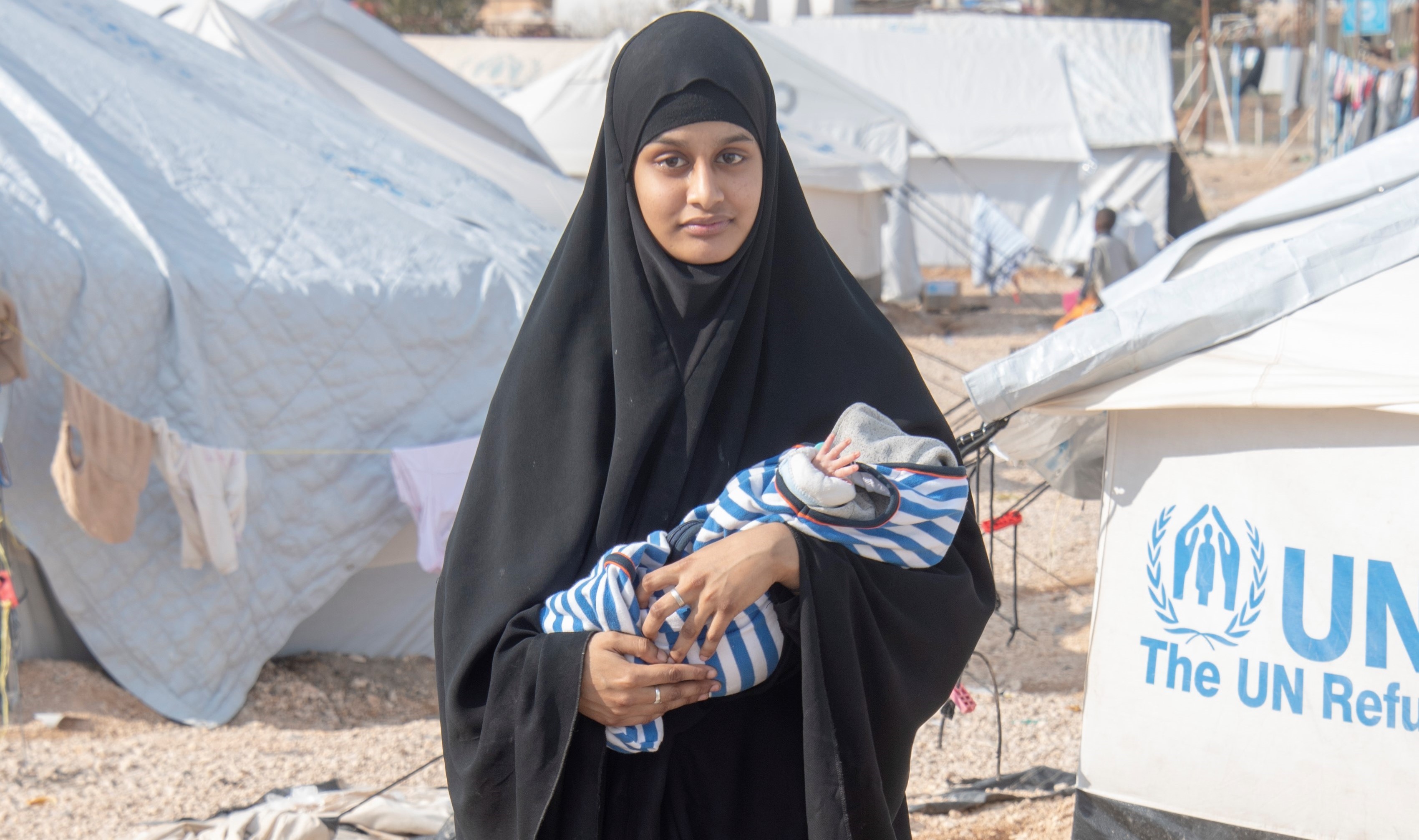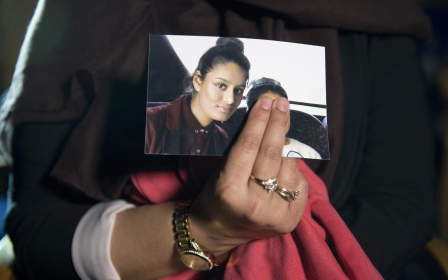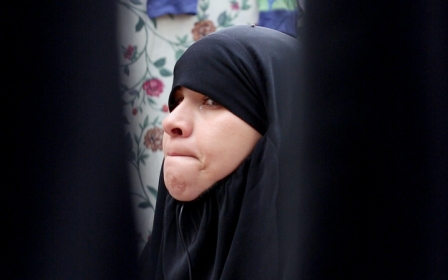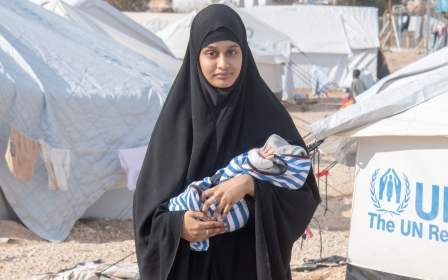Trinidad mother who saved her kids from Syria's al-Roj camp vows to help others
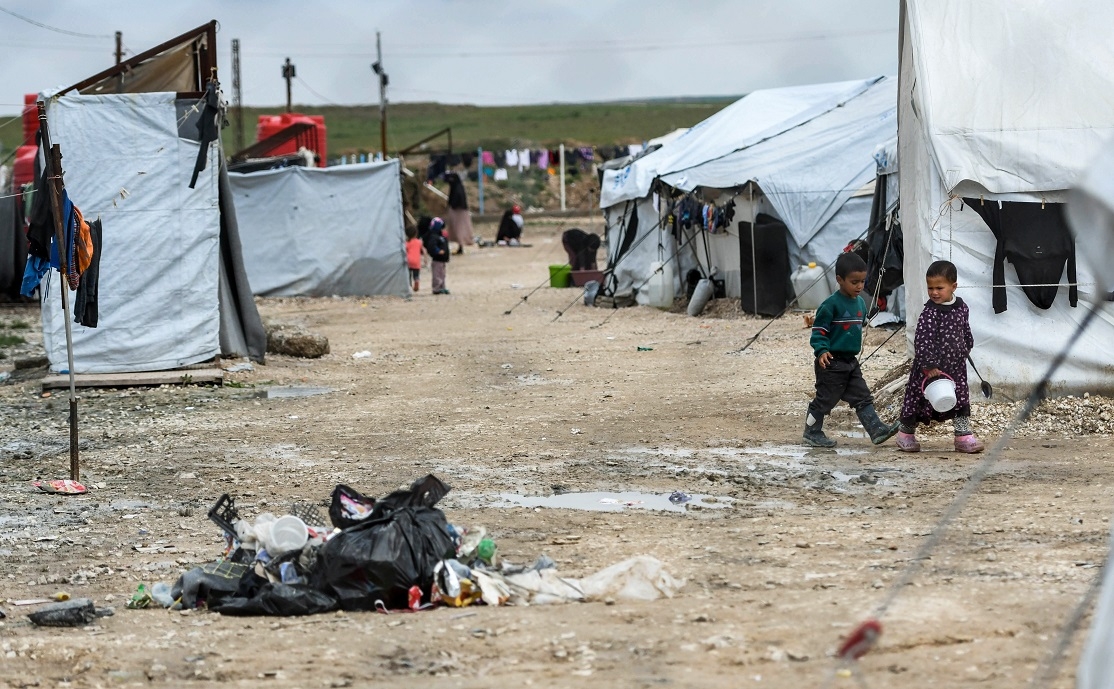
A mother who rescued her two children from a Syrian refugee camp for families who fled Islamic State (IS) territory has spoken of her heartbreak after seeing images of underfed and emaciated infants still there.
Felicia Perkins said it was “unjust” that governments appeared reluctant to take in children languishing in overcrowded Kurdish-run camps and said she wanted to help those trapped.
It comes as the lawyer representing Shamima Begum's family called on governments to provide aid to improve conditions at the camps, which have been described by the United Nations as “dire”.
Begum, who left London aged 15 to join IS in 2015, was discovered in the al-Hawl refugee camp in Syria in February from where she said she pleaded to return home.
However, she was stripped of her British citizenship by the UK's home secretary in an effort to stop her from returning to Britain.
Images emerged last weekend of one-year-old Muhamed Skramo, one of seven siblings who was orphaned and feared missing when their parents were killed in the dying days of IS’s so-called caliphate.
A Kurdish official confirmed his six brothers and sisters were safe nearby.
Wide-eyed, skeletal and with a shock of short blonde hair, Muhamed was tracked down by the UK's ITV news to a hospital close to the al-Hawl refugee camp where he was being treated for malnutrition.
Muhamed's Sweden-based relatives have called on the Swedish government to safely repatriate the siblings, but a foreign ministry spokesperson warned this would present “a major challenge” because three of the seven were born in Syria, not Sweden.
"The children's perspective is central to the government," the spokesperson added.
According to the United Nations, more than 73,000 people are living in the al-Hawl camp in Syria's Al-Hasakeh governorate.
Of that number, 65 percent are under the age of 18 and more than nine in 10 are women and children "in dire condition".
Epic journey
After being shown the images of Muhamed, Perkins, who is one of the few people to have rescued their children from the camps, said that the conditions he and other children faced were “unfair”.
"It really breaks my heart," Perkins said, speaking to Middle East Eye from a suburb just outside Port-of- Spain, the capital of Trinidad and Tobago. "It’s unfair seeing as they had no part to play in it. I wish I could reach out and help."
As part of a 20,000 km round-trip in January, Perkins travelled through London, Switzerland and Iraq to reach her two boys who had been kept in the neighbouring Roj camp in northern Syria where conditions were so bad they were forced to sleep on concrete toilets.
The boys had been abducted and taken to Syria four years ago by their father, an IS fighter who is now believed to be dead.
Trinidad and Tobago, which has seen scores of its citizens travel to IS-held territory, granted passports to the boys to facilitate their return.
But some countries have not been so fast to act. With no effort from the British government to save him, the death of Begum's baby in al-Hawl is just one among dozens of children to have died in the freezing and insanitary conditions of the camp.
More foreign born-children are among those at risk, but there is little in the way of detailed plans to save them.
As well as Sweden, the UK has said it will not attempt to retrieve trapped children, while Australia initially refused to allow entry to children before conceding they could come back but wouldn't be helped to return.
'How can you sleep at night?'
Perkins is horrified by the idea that governments could be leaving their child citizens to die in the inhospitable conditions of al-Hawl.
"How can you sleep at night knowing that a child died because you did nothing to help them?" she said. "That’s so cold. It’s so cold hearted."
'How can you sleep at night knowing that a child died because you did nothing to help them?'
-Felicia Perkins
Authorities in northern Syria continue to struggle with an influx of people displaced as IS staged its last stand against US-backed Kurdish groups in Baghouz.
In al-Hawl, it's thought that 355 of the refugees are minors who are unaccompanied or separated from their families, like Muhamed and his siblings.
Shortages mean hundreds of children have been treated for malnutrition at the camps, with many forced to sleep out in the open exposed to the elements, aid agencies say.
Speaking during a visit to al-Hawl earlier this month, Peter Maurer, the president of the International Red Cross, said that the organisation’s “top priority” was to repatriate unaccompanied children.
'Innocent citizens'
Begum, who was a schoolgirl when she left East London for the so-called caliphate, is at the centre of debates on repatriation.
When she reemerged at al-Hawl, heavily pregnant, her pleas to return to the UK were turned down and her citizenship stripped.
Begum gave birth to a baby boy called Jarrah in the camp, who died three weeks later of pneumonia.
Despite being considered a British citizen, the newborn was given no help from UK authorities.
Begum is thought to be among 650 Europeans held at the Kurdish-run camps.
Speaking to MEE, Begum’s family lawyer Tasnime Akunjee said the number of children that had not been repatriated back to their countries “called into question” the purpose of governments.
“These kids are innocent citizens of various countries and those countries have a duty to assist their innocent children abroad,” Akunjee said.
“If they’re not discharging their duty towards children, it fundamentally calls into question what the purpose of a government is if it’s not looking after its most vulnerable citizens.”
Akunjee said that there had been unrest in the camps over a spike in the child mortality rate and called on foreign governments to supply medicine and goods, particularly to assist the welfare of children.
European countries have taken different approaches to nationals held at the camps, with France, Germany and Ireland moving forward with plans to repatriate their citizens.
Commenting on this, Akunjee said: “Britain has maintained that it’s too dangerous to try and assist their citizens in those camps which is clearly something of a fiction given the approach by other European countries.”
Back in Port-of-Spain, Perkins says she is prepared to go the distance to support families - including reaching out to authorities on behalf of families seeking to repatriate their children to "let them understand how serious the situation is".
"I’m willing to give my all," she said.
Middle East Eye propose une couverture et une analyse indépendantes et incomparables du Moyen-Orient, de l’Afrique du Nord et d’autres régions du monde. Pour en savoir plus sur la reprise de ce contenu et les frais qui s’appliquent, veuillez remplir ce formulaire [en anglais]. Pour en savoir plus sur MEE, cliquez ici [en anglais].


